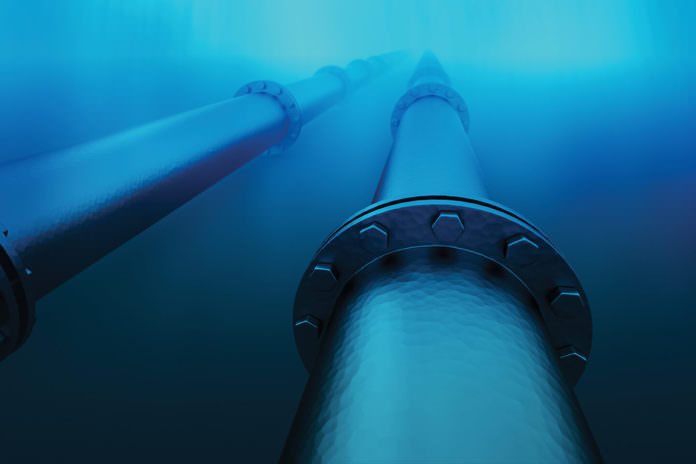
It’s no secret: activists, motivated by hard-core anti-fossil fuels ideology, have manipulated the law to slow down pipeline development. They’ve gotten to the governors of some states and pushed them to use certain powers granted to the latter under Section 401 of the Clean Water Act as a weapon against natural gas pipelines.
The water quality certification requirement contained in Section 401 was intended to give the states a role in ensuring pipeline development meets state standards while the Federal Energy Regulatory Commission (FERC) managed the process. It’s being abused badly, but help is on the way. Pipeline opposition is about to lose its most powerful weapon.
This is because the Trump administration, following up on signals from the courts, has moved rapidly to end the abuse of Section 401.
That abuse has included the blackmailing of applicants desiring water quality certifications and applying to the states for them. The law has always said states have a year to act. They’ve extended that to several years by claiming pipeline companies haven’t supplied enough information, forcing them to refile applications to have any hope of securing the certifications.
Some states have also taken to inserting issues other than water quality matters into their reviews, including air quality and greenhouse gas emissions, which have zero to do with the Clean Water Act. They’ve attempted to turn Section 401 into a state pipeline veto process with no authority or standards.
Anti-gas states have dwelled on penny-ante issues that stretch water quality certification far beyond its original intent when written several decades ago. They’ve turned the process into a political one, delaying decisions until the last moment. The intent has been to allow pipeline opposition as much organizing opportunity as possible and to create public demand for denials.
The examples of this abuse abound, especially in New York and New England, where so much natural gas is demanded and pipeline infrastructure is so inadequate. No less than four major pipeline projects in the Empire State have been denied water quality certification, the most recent being the Northern Access Pipeline, for the second time.
One of these pipelines, a Millennium Pipeline extension, which had FERC approval, got built under court order. This was despite state objection because the company was aggressive in challenging the state. It didn’t play along, which had been the failing strategy de jour for pipeline developers not accustomed to the ways of a state where Tammany Hall reigned.
The Northern Access Pipeline, for similar reasons, is likely to get built as well. The future of the other two has also brightened a great deal due to court actions and the Trump administration’s plan to build on them.
The tide began turning with a federal court decision. The case, Hoopa Valley Tribe v. FERC, was only decided on January 25 and also involved a state effectively forcing an applicant for water quality certification to withdraw and resubmit applications as a delaying tactic. Although it didn’t involve gas, it established two things now being addressed by Trump as well.
First, it made clear a year is a year and not something else. Blackmail schemes forcing applicants to withdraw and resubmit the same request over more than a year don’t cut it. FERC can decide “time’s up” and declare such states have waived their review rights. Moreover, the court said that “while a full year is the absolute maximum, it does not preclude a finding of waiver prior to the passage of a full year.” That’s huge. It demands reasonableness.
FERC quickly picked up the court’s direction and has stopped enabling state delays, which is critical in itself, giving new hope to developers of projects such as the Constitution, which was forced into years of negotiation with New York only to be denied in the end.
The major impact of Hoopa, though, was that it offered the Trump administration a rationale to issue an executive order telling federal agencies to develop new guidance on water quality certification with a view toward ending the state abuse. Astoundingly, the previous EPA manual encouraged states to use withdraw-resubmission processes as alternatives to denial.
That didn’t work out so well. So, now the Trump folks are busy developing much more rational advice. The EPA has just come out with new guidance in a draft document. It does many common-sense things, including a reinforcement of Hoopa principles; that is to say, a year means the time needed, which can be no more than 12 months.
The draft guidance also defines application receipt for the first time, much needed to avoid game-playing by states looking for loopholes to lengthen review periods. It tightens other procedures to ensure there are no unreasonable delays. It eliminates the consideration of issues extraneous to water quality certification; there will be no more inhaling of greenhouse gases.
The EPA proposes to treat water quality certification as a matter of addressing discharges directly associated with a pipeline rather than allowing states to cast votes on the projects themselves. It specifically provides that broader, non-water quality impacts are to be reviewed by FERC under the National Environmental Policy Act and other federal law.
All of this is good, but will it work? Yes, if the letter and spirit of the law, combined with common sense, are to mean anything. The states don’t like it, of course, and there will be legal challenges, but the odds are with the Trump people, given the Hoopa decision and the fact the EPA is simply following the court’s direction and effectively implementing it.
Recalcitrant states will be issuing more denials and doing it more quickly, but that’s not so bad. It simply moves things to a less political venue and does that more quickly as well. The plain meaning of the Clean Water Act is clear to courts. Hoopa demonstrated that. Therefore, there is every reason to hope it will prevail in those courts.
Naturally, there are no guarantees. Courts are fickle and not altogether free of political pressure themselves. Yet, they are not as likely as our worst governors to pander to pipeline opposition groups either. There is, at least, some reasonable expectations the law will matter.
That should preserve most of what Trump’s EPA has proposed and deny pipeline opposition the weapon it has been using to thwart critical infrastructure projects in those areas of the country needing the shale gas we are so darned good at producing but often can’t get to market. It’s long past time we ended the abuse, and it looks like a very bright light at the end of the pipe.
About the author: Tom Shepstone is the owner of Shepstone Management Company Inc., a planning and research consulting firm located in northeastern Pennsylvania. He has advised many counties in both New York state and Pennsylvania, as well as other states, on economic development strategies, especially as they relate to rural and agricultural areas. He is also the publisher of NaturalGasNOW.org, a blog focused on the same objective.














